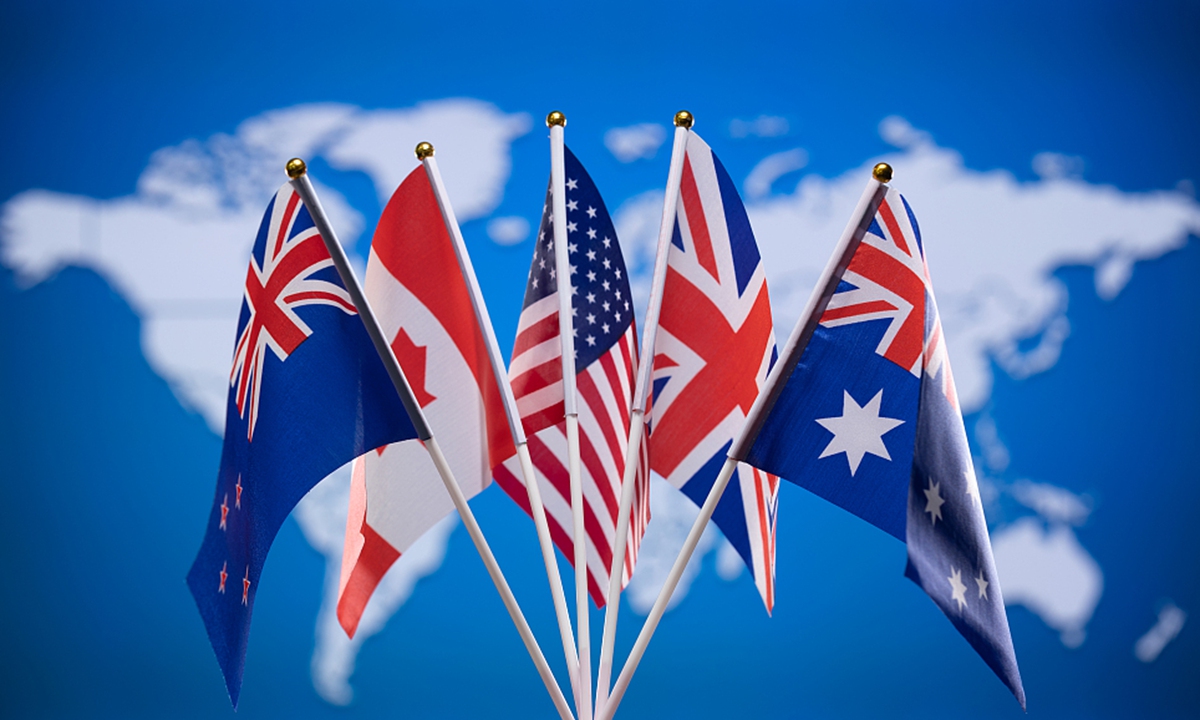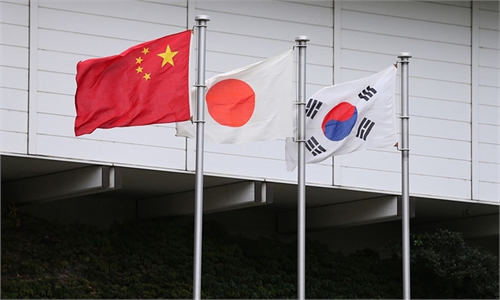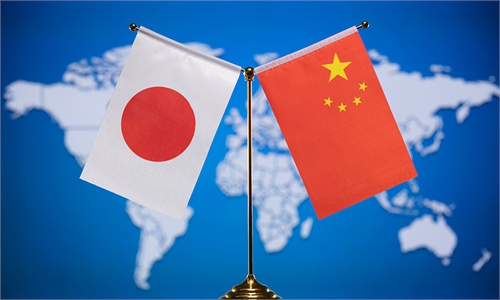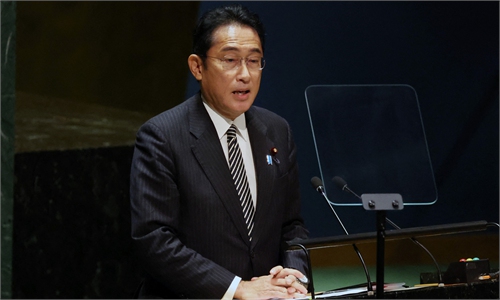Japan hosts Five Eyes intel meeting for 1st time; experts warn of Tokyo’s eagerness to become the ‘sixth eye’

The Five Eyes Alliance Photo: VCG
The Five Eyes alliance hosted an intelligence group meeting in Japan on Wednesday, the first time that such a meeting has been held in a non-member country, a reflection of Tokyo's "critical position for gathering information on nearby China," Nikkei Asia reported.
Chinese experts warned of Japan's eagerness to join the alliance, but suggested that as the Five Eyes countries are all of Anglo-Saxon origin, Japan will seem "an outsider." The group is only using Japan's zeal to serve their own hegemonic purposes, analysts said.
The decision to hold the meeting in Japan reflects its "growing importance as an intelligence-collecting base in the Indo-Pacific region," Nikkei Asia reported.
The meeting with members from the grouping - comprising the US, UK, Canada, Australia and New Zealand - took place as part of a broader conference held in Tokyo among senior enlisted personnel from across Japan's Self-Defense Forces, the Japan Times reported on Wednesday.
While this marks the first such meeting outside a Five Eyes country, it is not the first time Japan has been involved in such gatherings. In October, Japan's Self-Defense Forces participated in a meeting in Canada for the first time by invitation, according to Nikkei Asia.
Japan has long sought to enhance its status by pursuing membership in the Five Eyes grouping. And to gain this position, Japan is striving to align itself more closely with the Five Eyes in various fields, including military, security, politics and culture, Zhou Yongsheng, a deputy director of the Japanese Studies Center at the China Foreign Affairs University, told the Global Times on Wednesday.
While the possibility of Japan becoming the "sixth eye" is increasing, potential membership will depend on negotiations among member states, as the Five Eyes is not merely an intelligence sharing group, it is rooted in shared ethnic heritage and cultural ties, as all members are of Anglo-Saxon origin, Zhou said.
In contrast, Japan does not share the same ethnic and cultural background with these countries, which will make it "an outsider" in this context, Zhou said.
By offering incentives to "award" Japan - in this case, choosing Tokyo to host the meeting - the Five Eyes alliance is creating a perception that Japan is "highly valued." In reality, the partnership serves the Five Eyes' hegemonic purposes by forming camp confrontation, Lü Chao, a research fellow on Northeast Asia studies at the Liaoning Academy of Social Sciences, told the Global Times.
The meeting took place against the backdrop of a changing international landscape. At the just-concluded APEC Economic Leaders' Meeting in Lima, Peru and the G20 Summit in Rio de Janeiro, Brazil, China demonstrated an ever-more influential role in promoting peace and development across the globe through cooperation, as local officials hailed China's pivotal role in advancing inclusive, sustainable development across the Asia Pacific and globally.
"At such a time of change, establishing closer ties with or even joining Five Eyes is not in line with Japan's interests," Lü said, noting that the recently reelected Japanese Prime Minister Shigeru Ishiba has been actively engaging with China.
Since the US implemented its so-called Indo-Pacific strategy, the Five Eyes alliance has strengthened intelligence and military interactions in the region, which have brought about great uncertainty. In this context, the latest move will cause further unrest among regional countries, Lü said.



